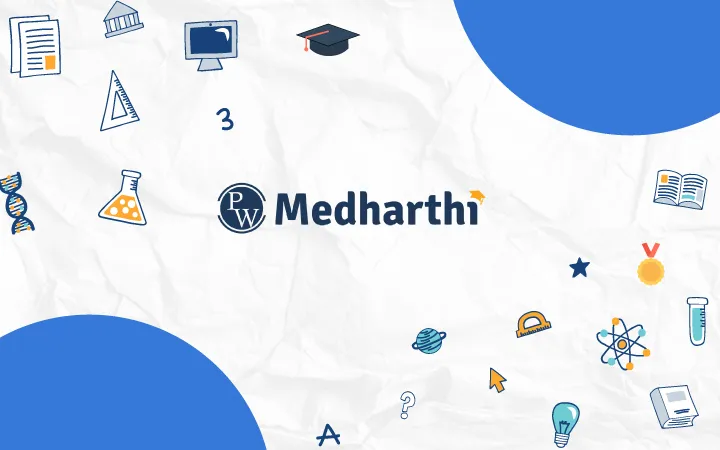
Online MSc Scope is not limited in any way. Whether a candidate chooses to pursue a PhD, an MBA, or professional certifications or step directly into jobs, this degree provides multiple pathways. With flexibility, affordability, and recognition, an Online MSc course is one of the best academic investments today. It empowers students and professionals to build a stable, future-ready career in science, technology, and research fields. Candidates who are planning to or are pursuing an online MSc programme can explore details about future scope here.
Online MSc Course
An Online MSc (Master of Science) is a two-year postgraduate programme designed to provide advanced knowledge in fields like Mathematics, Physics, Chemistry, Data Science, Environmental Science, Biotechnology, and more. The online format allows flexibility, enabling learners to study at their own pace through recorded lectures, live classes, e-study materials, and online examinations.
Choosing an Online MSc Course is a smart move for students and working professionals who want to upgrade their academic profile without leaving their current commitments. With the rise of digital education platforms and UGC-approved online universities, an MSc degree earned online is also accepted by universities and industries. This makes it a perfect option for:
-
Working professionals aiming for promotions.
-
Fresh graduates who want to continue their higher education.
-
International students who cannot attend on-campus classes.
From here, candidates can learn about the Online MSc Course details:
|
Online MSc Course Highlights |
|
|---|---|
|
Feature |
Details |
|
Duration |
2 years (4 semesters) |
|
Mode |
100% Online (Live + Recorded) |
|
Eligibility |
BSc or Equivalent Degree in the relevant subject |
|
Specialisations |
Mathematics, Physics, Chemistry, CS, Data Science, Life Sciences, Environment |
|
Recognition |
UGC-DEB Approved |
|
Flexibility |
Self-paced + Live Lectures |
Online MSc Scope Overview
The Online MSc Scope is vast and diverse. Completing this online course of 2 years can open doors to opportunities in research, teaching, corporate jobs, and even entrepreneurship. The program is not just about theoretical knowledge; it also develops analytical thinking, research skills, and practical applications in students.
The demand for highly qualified postgraduates in the fields of science, technology, and research has expanded considerably in recent years. With the advent of digital education platforms and the recognition of online degrees by regulatory authorities, the Online Master of Science (MSc) programme has emerged as a preferred option for students and professionals seeking academic advancement.
The following table can help interested students learn about the fields where online MSc courses have been offered:
|
Online MSc Scope Areas |
|
|---|---|
|
Area of Scope |
Opportunities |
|
Research |
Govt. & Private Labs, PhD Programs |
|
Teaching |
Schools, Colleges, Universities |
|
Corporate Sector |
IT, Analytics, Pharma, Biotech |
|
Entrepreneurship |
Startups in Tech, Health, Environment |
|
Government Sector |
Research Organisations, Civil Services |
Online MSc Scope Specialisation Wise Details
A candidate’s specialisation in an online MSc course can also create a difference in the future scope. In other words, the career scope after an Online MSc depends on the specialisation chosen by a candidate:
|
Online MSc Scope Specialisation Wise Details |
|
|---|---|
|
Specialization |
Career Scope |
|
Data Science / CS |
AI, ML, Big Data, IT Consulting |
|
Biotechnology |
Pharma, R&D, Medical Research |
|
Life Sciences |
Research Labs, Healthcare, Teaching |
|
Mathematics |
Academia, Finance, Data Analytics |
|
Physics |
Research Labs, Software, Teaching |
|
Environmental Science |
NGOs, Sustainability, Govt. Projects |
After MSc Which Course is Best?
Many students wonder, “After MSc, which course is best?”. The answer depends on the career goals of an individual. Also, candidates must have studied the relevant specialisation under an online MSc course to pursue a course in higher studies, like a PhD.
Here are some of the vibrant higher studies options a candidate can pursue after an MSc online course:
|
Higher studies options after an online MSc course |
|
|---|---|
|
Pathway |
Best For |
|
PhD |
Research & Teaching (University level) |
|
MBA |
Corporate & Management Roles |
|
Professional Certifications |
Data Science, AI, Cybersecurity, Clinical Research |
|
NET/SET/JRF |
Academia & Fellowship Programs |
Jobs After Online MSc
Many students wonder what the jobs are After Online MSc courses. An Online MSc programme opens doors to multiple high-paying jobs in both private and government sectors.
|
Jobs After Online MSc |
||
|---|---|---|
|
Job Role |
Sector |
Average Salary (India) |
|
Research Scientist |
Govt./Private Labs |
₹5–12 LPA |
|
Data Analyst/Scientist |
IT, Analytics |
₹6–15 LPA |
|
Lecturer/Professor |
Education |
₹4–10 LPA |
|
Environmental Consultant |
NGOs/Govt. |
₹5–9 LPA |
|
Pharma Associate |
Healthcare |
₹4–8 LPA |
|
Project Manager |
IT/Science |
₹7–15 LPA |
After going through the above data, candidates can infer that the employment opportunities after an Online MSc are vast, with openings in both the public and private sectors. The online MSc course equips students with advanced knowledge and skills that are directly applicable in research, education, industry, and consulting.
Government and Private Sector Opportunities
Both government institutions and private enterprises actively recruit MSc graduates. The acceptance of online education has grown substantially, particularly after regulatory authorities such as the UGC-DEB approved online degrees from accredited universities. Employers are increasingly valuing skills, competencies, and knowledge rather than the mode of study.
Candidates can refer to the following information to get an overview of career options in the government and private sectors:
Government Sector
-
Research organisations such as CSIR, DRDO, ISRO, and ICMR.
-
Teaching positions in universities and colleges, subject to NET/SET qualification.
-
Opportunities in civil services and state public service commissions.
-
Positions in environmental and sustainability projects under the Ministry of Environment, Forest and Climate Change.
Private Sector
-
Employment in multinational corporations (MNCs) across IT, data science, and analytics.
-
Research and developmental job roles in pharmaceutical and biotechnology firms.
-
Managerial and technical roles in consulting firms and startups.
-
Emerging opportunities in EdTech, HealthTech, and GreenTech sectors.
Online MSc scope FAQs
Is an Online MSc valid in India?
Can I do a PhD after an Online MSc?
What is the salary after an Online MSc?
Which specialisation in the Online MSc has the best scope?




